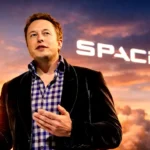Key Points:
- Dutch government grapples with requests from ASML to service equipment sold to Chinese customers amid pressure from the U.S. to restrict such services.
- ASML’s pivotal role in the semiconductor industry adds complexity to the geopolitical dynamics surrounding its servicing requests.
- Geopolitical tensions related to Ukraine’s conflict with Russia influence the Dutch government’s approach to ASML’s dealings with China.
- Discussions between Mark Rutte and Chinese President Xi Jinping highlight the challenges of balancing economic ties with security priorities.
The Dutch government finds itself in a diplomatic and strategic quandary as it grapples with requests from chipmaking giant ASML to service equipment sold to Chinese customers. While facing pressure from the United States to restrict maintenance services to certain Chinese entities, Dutch Prime Minister Mark Rutte’s administration is treading cautiously, balancing national security concerns and economic interests.
ASML, the Netherlands’ largest company, is pivotal in the global semiconductor industry, with its cutting-edge equipment being indispensable for chip manufacturing. However, recent geopolitical tensions, particularly regarding Ukraine’s conflict with Russia, have complicated matters for the Dutch government.
Rutte’s discussions with Chinese President Xi Jinping underscored the challenges of navigating economic ties and security priorities. The Netherlands’ support for Ukraine and concerns over China’s alignment with Russia have heightened scrutiny over ASML’s dealings with Chinese clients.
While the Dutch government emphasizes a case-by-case approach to licensing requests, it faces pressure from the U.S. to align with stricter export regulations. ASML’s reluctance to comment on the matter reflects the issue’s sensitivity and implications for global trade dynamics.
The Netherlands’ stance on ASML servicing requests could have far-reaching consequences for its relationship with the U.S. and China. The government’s decisions may impact ASML’s operations and broader geopolitical dynamics, including Europe’s technological competitiveness and security alliances.




